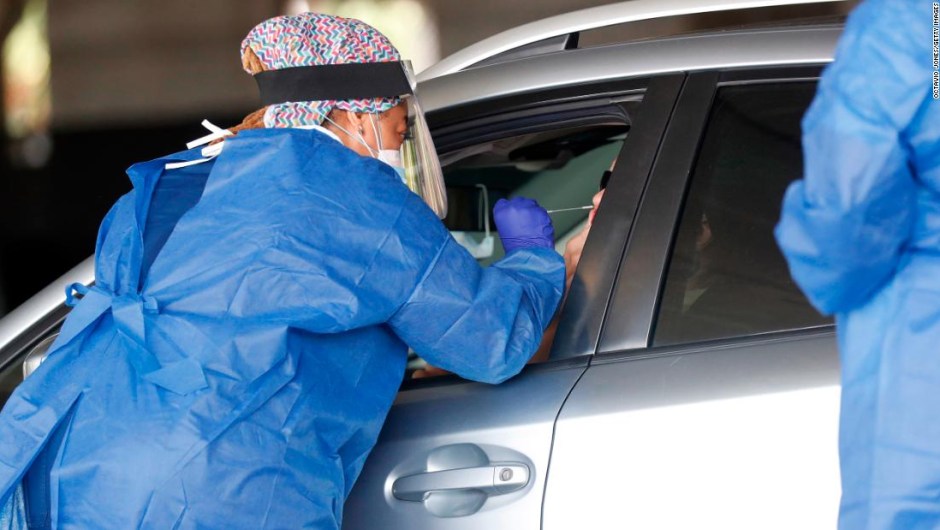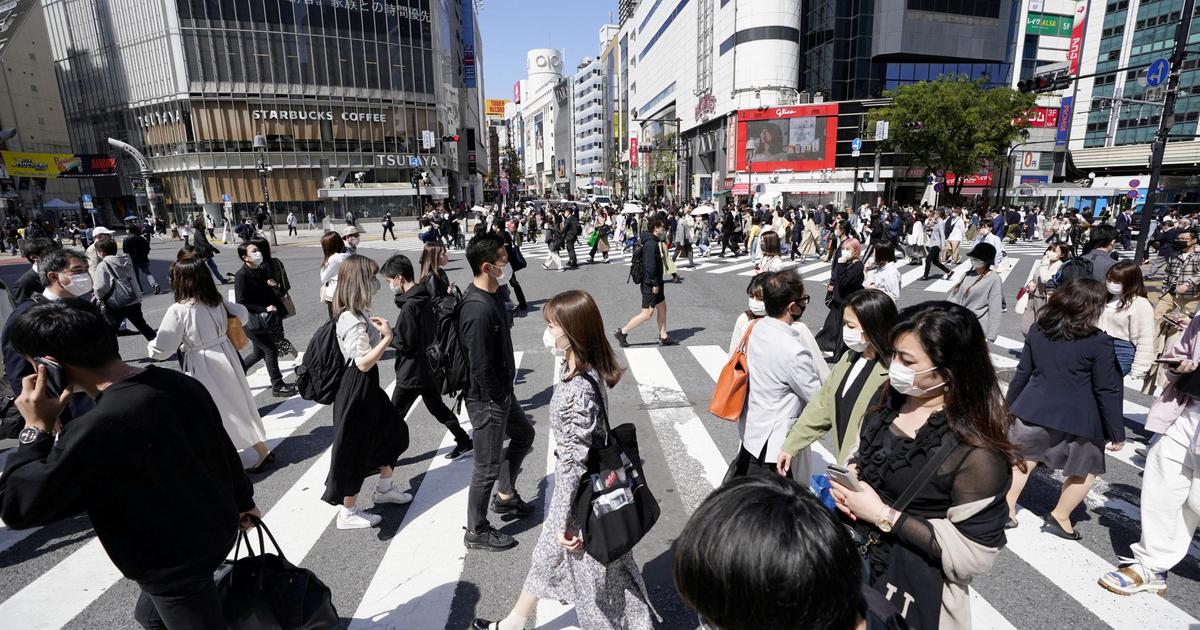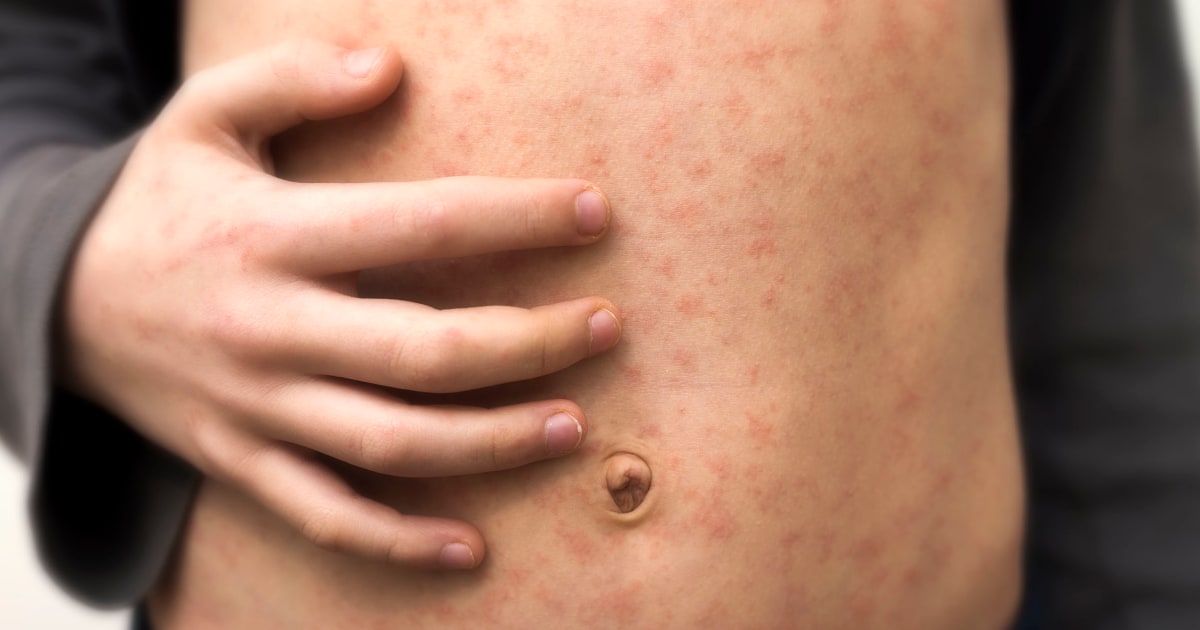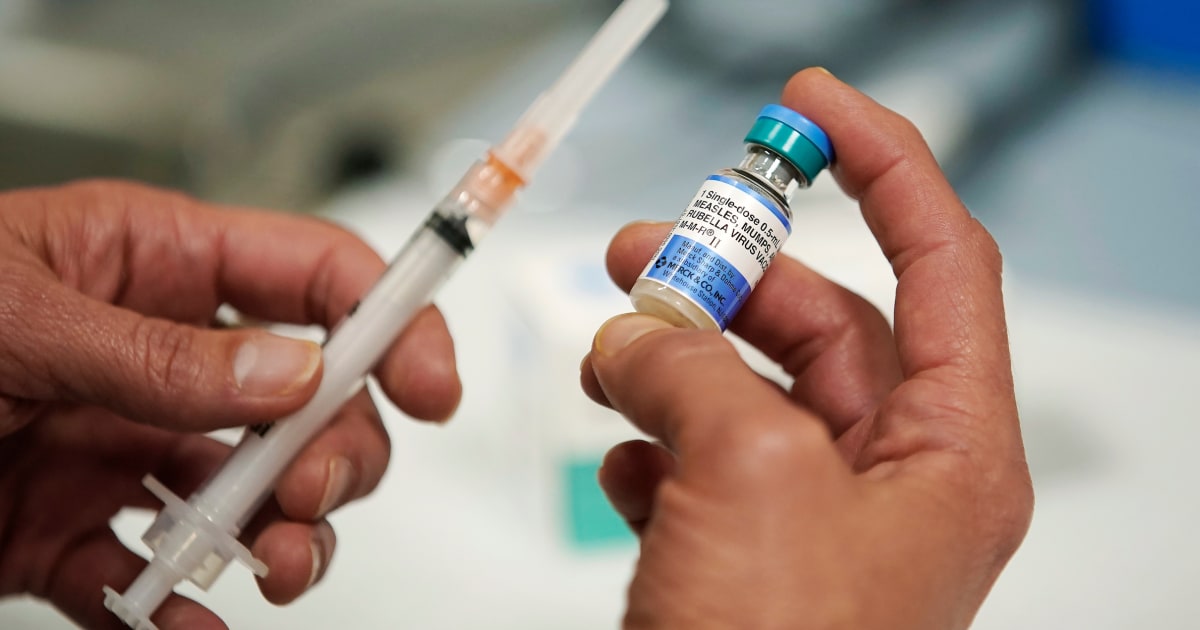(CNN) - The Florida Department of Health reported 15,299 new cases of covid-19 on Sunday, the highest number of new cases reported in a single day by any state since the coronavirus pandemic began.
The previous record, also set in Florida, was on July 4, with 11,434 new cases reported, according to data from Johns Hopkins University (JHU).
The positivity rate for the test in Florida is 19.60%, according to JHU statistics.
- LOOK: Coronavirus positivity rate: what is it?
With coronavirus cases on the rise across the US, state and local leaders have found themselves at odds over the kinds of restrictions that should exist to move forward effectively.
In Florida, Rep. Donna Shalala said the virus is still out of control and that places like Miami are close to being closed a second time.
"It's out of control statewide because our governor won't even tell everyone to wear masks. At least in Miami-Dade County, everyone should wear a mask when outside, "he told CNN on Saturday night.
"This is an American tragedy," he added.
In recent weeks the state broke multiple daily high records in new cases and reported another 10,360 new infections on Saturday. About 40 hospitals across the state do not have beds available in ICUs and more than 7,000 patients are hospitalized across the state with the virus, according to state data released Saturday.
But Governor Ron DeSantis has balked at implementing a mask mandate across the state, saying last week that the state has "stabilized where we are." On Saturday, he suggested that Florida would not move to the next reopening phase for now, and said "we want to reduce this positivity rate."
In Georgia, Governor Brian Kemp criticized the Atlanta mayor's decision to move the reopening of the city to phase 1, saying the action was "merely indicative, non-binding and legally inapplicable." Phase 1 includes an order for residents to stay home, except for essential travel. The mayor, who tested positive for covid-19, defended her decision arguing that the state was recklessly opened and that residents were "suffering the consequences."
"As clearly stated in my executive orders, no local action can be more or less restrictive, and that rule applies statewide," Kemp wrote on Twitter.
The debates are part of national efforts by US leaders to control the rapid spread of the coronavirus without having to force residents into a second lockdown. More than half of the US states have suspended or reversed their reopening plans in hopes of slowing down new cases. But both mandates and facial mask suggestions by officials still face strong reaction from many Americans, even when experts warn that they are the most effective way to prevent further spread of the virus.
Now mired in the coronavirus crisis, the US reports more than 3.2 million infections, according to Johns Hopkins University. That's more than the individual population of 21 states, Washington DC and Puerto Rico, according to data from the US Census Bureau. At least 134,814 Americans have died.
Trends in states
According to Johns Hopkins University data, at least 33 states are trending upward in new cases, compared to the previous week.
Those states are: Alabama, Arkansas, California, Colorado, Connecticut, Florida, Georgia, Hawaii, Idaho, Illinois, Indiana, Iowa, Kansas, Kentucky, Louisiana, Massachusetts, Michigan, Minnesota, Missouri, Montana, Nebraska, New Mexico, Carolina North, North Dakota, Oklahoma, Ohio, Pennsylvania, Texas, Utah, Vermont, Virginia, West Virginia, and Wisconsin.
Fourteen states remain stable: Alaska, Arizona, Maryland, Mississippi, Nevada, New Hampshire, Oregon, New York, Rhode Island, South Carolina, South Dakota, Tennessee, Washington State, and Wyoming.
Three states report a decline: Delaware, Maine, and New Jersey
- MORE: Analysis: Trump Chooses Distraction Policy Over Leadership
Americans left on July 4
Even as cases were rising in many parts of the country, a new analysis of cell phone data at 10 coronavirus hotspots suggests that more people went out during the July 4 holiday than during Memorial Day weekend (Memorial Day).
Mobility is one of the drivers of virus transmission, experts say, but it could be weeks before there is, if any, an increase in cases related to July holidays.
The analysis comes from data shared with CNN by Cuebiq, one of the private companies that the U.S. Centers for Disease Control and Prevention uses to track overall movement in the U.S. It included data from Houston areas, Austin, Dallas, San Antonio, Phoenix, Orlando, Tampa, Charleston, Miami and Atlanta.
Travelers tend to visit cities in their own state or region, but some traveled further afield. About 3.7% of visitors to the Miami area came from New York, and almost 4% came from the Atlanta area. Of those who visited Phoenix, 16.3% came from just three metro areas in Southern California, including Los Angeles, Riverside, and San Diego. Others came from areas around Chicago and Dallas.
The trips came despite guidance from health officials who urged Americans to avoid traditional celebrations, adding that residents who can feel good may also carry the virus.
The CDC now estimates that 40% of people infected with coronaviruses show no symptoms. The percentage of asymptomatic cases in the country remains uncertain, the agency said.
Faces we see, coronavirus we do not know, says expert 3:32The fierce debate about opening schools
As the country grapples with the crisis, the president announced last week that he is pressing governors to reopen schools in an effort to return the country to normal.
Despite the increase in cases across the state and protesters' screams from educators, the Florida Department of Education announced that it will require schools to reopen in the fall. Other state leaders have not announced any changes yet, but some local decisions have delayed the start of the fall semesters. The CDC published guidelines for parents and administrators, but the agency's director, Dr. Robert Redfield, noted that the safest path decision rests with the districts.
But CDC internal documents warned that the full reopening of K-12 schools and universities would pose the "greatest risk" for the spread of the virus, according to a report by The New York Times.
- MORE: New York Times: Trump Considered Selling Puerto Rico After Hurricane Maria, Says Former Acting Chief of Homeland Security
The 69-page document obtained by the Times marked "For Internal Use Only" was among the materials for federal public health response teams deployed at coronavirus hotspots, to help local public health officials manage the outbreak , the newspaper reported.
CNN's Melissa Alonso, Rosa Flores, Jen Christensen, Randi Kaye, Melissa Alonso, Amanda Watts, and Sara Weisfeldt contributed to this report.
Florida















